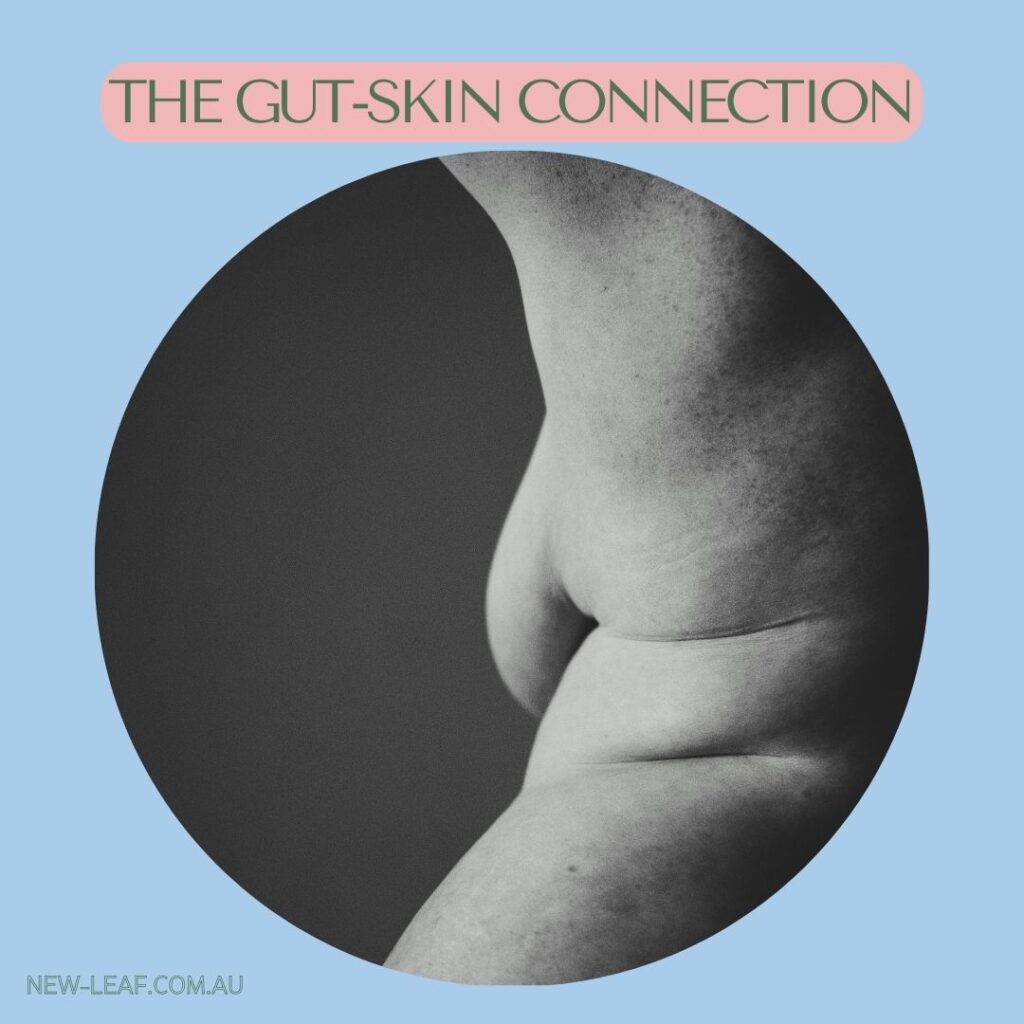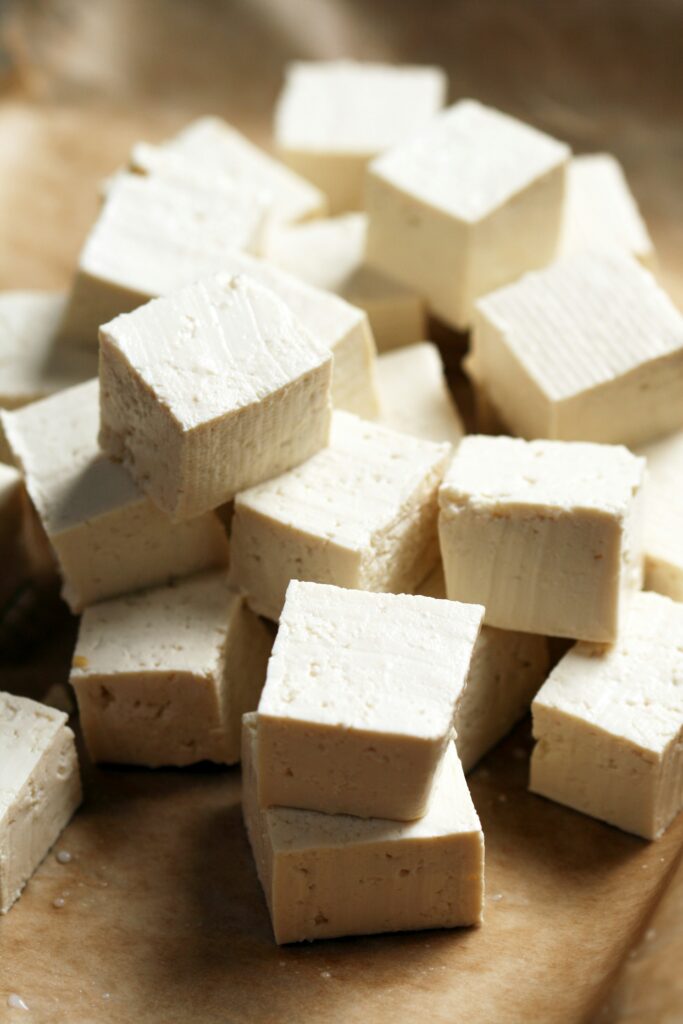As naturopaths in Australia, we often encounter questions about the intricate relationship between gut health and skin conditions. Let’s explore some common queries and shed light on this fascinating connection.
Q: What is the skin microbiome, and how does it compare to the gut microbiome?
As naturopaths at New Leaf Naturopathic Health, we’re here to explain this complex topic. The skin microbiome is a diverse community of microorganisms living on your skin, including bacteria, fungi, viruses, and even tiny mites. It’s quite different from the gut microbiome in several ways:
- Oxygen lovers: Most skin bacteria are aerobic, meaning they thrive in oxygen-rich environments. This is unlike gut bacteria, which prefer an oxygen-free setting.
- Location diversity: The types of microbes vary depending on the body part. For example, the microbes on your hands differ from those in your armpits.
- Environmental influence: The skin microbiome is more exposed to external factors and can change more readily based on your environment.
Q: How does the skin microbiome develop?
The skin microbiome, like the gut microbiome, begins developing at birth. Its development is influenced by various factors, including:
- The mother’s diet during pregnancy
- Method of delivery (vaginal or C-section)
- Skin-to-skin contact after birth
- Breastfeeding
- Antibiotic use (before and after birth)
- Environmental exposure
Q: Does the skin microbiome change over time?
Absolutely! The skin microbiome evolves throughout your life. For instance:
- During puberty, there’s an increase in bacteria associated with oily skin.
- In adulthood, the microbial community generally stabilises but remains responsive to environmental factors.
Q: How does my gut health affect my skin?
Your gut and skin are more closely connected than you might think. The gut-skin axis is a communication pathway where changes in one can significantly influence the health of the other. When your gut microbiome is imbalanced, it can lead to chronic inflammation that may manifest as skin issues like acne, eczema, or psoriasis.
Q: Can what I eat really show up on my skin?
Absolutely! Your diet plays a crucial role in both gut and skin health. A diet high in sugar and dairy can lead to acne, while one rich in fruits, vegetables, legumes, and nuts – like the Mediterranean diet – supports a healthy gut, reduces inflammation, and can improve skin health.
Q: Are probiotics good for my skin?
Yes, probiotics can be beneficial for your skin. Some skincare products now include prebiotics, probiotics, and postbiotics to help balance the skin’s natural microbiome. Additionally, oral probiotics can help balance the gut microbiome, reduce inflammation, and improve skin conditions.
Q: What about pre, pro, and postbiotics for skin health?
This is an exciting area of research. Here’s what we know so far:
- Some skincare products now include prebiotics, probiotics, and postbiotics to help balance the skin’s natural microbiome.
- While these products show promise, more research is needed to fully understand their impact on skin health.
- There’s growing interest in oral probiotics for:
- Balancing the gut microbiome
- Reducing inflammation
- Improving skin conditions
Dr Le Poole, an expert in the field, notes: “Most of the focus has been on the skin microbiome, especially when skin integrity is compromised, as in atopic dermatitis or psoriasis. It is surprising that the gut microbiome has not received as much attention, given its potential role”.
Q: How does stress affect my skin and gut?
Stress can have a significant impact on both your skin and gut. It can disrupt the balance of your gut microbiome and lead to skin issues. Practicing relaxation techniques can help manage stress and potentially improve both gut and skin health.
Q: What’s the link between gut health and specific skin conditions?
Several skin conditions have been linked to gut health:
- Acne: Diets high in fat and sugar may worsen acne by increasing sebum production and creating an environment conducive to acne-causing bacteria.
- Eczema: This condition can be triggered by food allergens and is associated with an imbalance in the skin microbiome.
- Psoriasis: This autoimmune disease is linked to imbalances in both the gut and skin microbiome.
Q: How can I support both my gut and skin health naturally?
As a naturopath, I recommend a wholistic approach:
- Eat a colourful diet: Focus on whole foods, rich in fruits, vegetables, and loads of plant-based foods. (Download our free resource on the best gut microbiome foods!
- Stay hydrated: Proper hydration is crucial for both gut and skin health.
- Manage stress: Incorporate stress-reduction techniques like meditation or yoga into your routine.
- Consider probiotics: Speak with your practitioner to find the best probiotic for you – not all probiotics are made equally, so you want to make sure that the evidence is behind the one you choose. Are probiotics magic? We’d say no.
- Protect your skin: Use sunscreen and adopt healthy sun habits to protect your skin from UV damage. Sometimes using less skin care products means better results – focus on a few simple topical skin care options, rather than throwing the kitchen skin at it.
Q: Can improving my gut health really make my skin look better?
While individual results may vary, research suggests that improving gut health can indeed have positive effects on skin appearance and health. By supporting a balanced gut microbiome, you’re potentially reducing inflammation throughout your body, which can manifest as clearer, healthier-looking skin.
Remember, everyone’s body is unique. At New Leaf Naturopathic Health, we’re here to help you understand your individual gut-skin connection and develop a personalised plan to support your overall health and wellbeing. If you’re experiencing persistent skin issues, it’s always best to consult with one of our practitioners for personalised advice.
Q: How does diet impact skin health?
Your diet plays a significant role in skin health. Here’s what to keep in mind:
- What you eat often shows up on your skin!
- A diet high in sugar and dairy can lead to acne.
- A Mediterranean-style diet rich in fruits, vegetables, legumes, and nuts can:
- Support a healthy gut
- Reduce inflammation
- Improve skin health
Why This Matters for Your Health
At New Leaf Naturopathic Health, we understand that both your skin and gut microbiomes play crucial roles in your overall health. By nurturing these microbial communities, we can help you achieve balance from the inside out.
Key Takeaways:
- Your skin hosts a complex ecosystem of microorganisms
- Microbiomes change throughout your lifetime
- Environment and lifestyle significantly impact microbial balance
- Wholistic approaches can support microbiome health
Remember, your body is an interconnected system. By supporting your skin and gut health through natural, holistic approaches, we can help you unlock your body’s innate healing potential. If you’re curious about how to optimise your microbiomes for better health, we’re here to guide you on your wellness journey.







